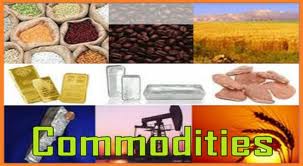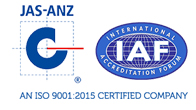 Commodity trade market has been significantly improved in India after liberalization in 1991. This has given boost to both physical and derivatives commodity market. The well established structured commodity market have boosted the commodity production as well minimize the pricing fluctuation risk of commodities. It has greatly facilitated multi-commodity exchange also.
Commodity trade market has been significantly improved in India after liberalization in 1991. This has given boost to both physical and derivatives commodity market. The well established structured commodity market have boosted the commodity production as well minimize the pricing fluctuation risk of commodities. It has greatly facilitated multi-commodity exchange also.
Commodity Market
It is a market like others to trade commodity. In India it is categorized as physical commodity market and Derivatives market.
Physical Commodity Market
This market is also known as cash market or spot market because the commodities are sold for cash with immediate delivery. This delivery based transactions involve the active traders, brokers and mediators. It is a direct commodity market where producer and buyer interact directly. Physical commodity transaction involves the risk factors like high volatility.
Derivatives Commodity Market
The contract based commodity transactions is happened in derivative market. The commodity prices are set and executed on confirmed future date for delivery and payment. It is a best method to protect the investor against volatile commodity prices.
The wide array of commodities transactions are executed including gold, silver, copper, menthe oil, crude oil, aluminium, iron ore, coal, coffee beans, wheat etc.
Commodity markets roll out on futures, swaps forward options and other derivatives.
Prospects of Commodity Market
Commodity markets are existed in the world from ancient time. In past, all transactions for livings were the part of commodity exchanges as per the world history.
The substantial growth of commodity market and transactions are based on two factors-
- Liberalization of capital and commodity market adopted by the country
- Effective implementations of financial intermediaries to promote derivatives.
India have initialized the process with establishing many commodity exchanges across the country including three multi commodity exchanges (MCX) for national level and national commodity and derivatives exchange Limited (NCDEX)
The system of forwards/future trading is controlled at three levels by Government of India, forward market commission and commodity exchanges. Their collaborative efforts are to create the market integrity, financial integrity, transparency in commodity prices and protect the customer interests.
Commodity Derivatives
There are commodity derivatives as below-
Forwards – It is a contract between the parties to exchange the commodity at a set price on particular date confirmed today.
This contract is unique and over the counter for fixed size, expiry data and the type of asset.
Futures – It is a standard contract between purchaser and seller, who affirmed the terms and conditions of commodity exchange at a defined future date. It is a part of organized exchange for future execution.
Options – It is a contract that gives option to second party if he/she doesn’t want to execute. Thus is becomes a non obligatory responsibility for second party at specific terms. In such case to make the first party rightful to gain the different between the strike price and commodity market price, if the commodity market price is higher than the strike price.
Swap – It is a two party’s agreement to exchange sequence of cash flow for particular time duration. Commodity Swap is an exchange obligation where not required physical delivery of commodities.
Here it tries to give brief information about what is the commodity market and types of commodity market along with the types of commodity derivatives, future & option and how commodity exchanges takes place in the market by Commodity Advisory Service Provider that provides the best commodity tips to turn out your commodity investment in profit.
